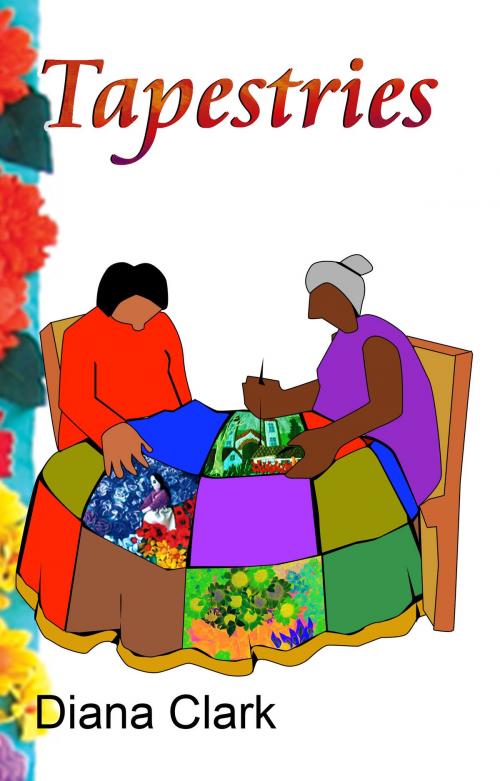| Author: | Diana Clark | ISBN: | 9780989912211 |
| Publisher: | Diana Clark | Publication: | November 7, 2013 |
| Imprint: | Smashwords Edition | Language: | English |
| Author: | Diana Clark |
| ISBN: | 9780989912211 |
| Publisher: | Diana Clark |
| Publication: | November 7, 2013 |
| Imprint: | Smashwords Edition |
| Language: | English |
A young Jesuit priest returns to Chile and a politically divided Catholic Church. As part of the newly established Vicariate of Solidarity, he is assigned the task of guiding and protecting the women of a church-sponsored workshop.
At first reluctant to work with them, Father Alejandro Saavedra soon discovers the courage and wisdom of these lively women and the beauty of the arpilleras, or tapestries, they create to protest the violence of General Augusto Pinochet’s brutal regime.
The themes these women used in their artwork came from the daily tragedy of their lives-- missing or detained family members, murder, arrests and torture of husbands and sons, public protests against Pinochet, and the desperately poor conditions they live in.
The women of the Holy Rosary Workshop, brutally frank and disrespectful of all authority, gradually form a family with Father Saavedra and the three upper class women who assist them in surprising ways. For nearly sixteen years, young or old, they share their stories, learn from each other, and fight against a government that has done everything it can to destroy them and their children.
As this young, handsome priest from a privileged background guides and protects these women, he also raises their political consciousness and brings them a greater sense of community. In the process, they teach him to appreciate the strength and generosity of women and to respect their courage and dedication to each other and their families. Father Alejandro, as these women call him, also learns a humbling lesson in the many forms that love can take.
In time, the dictatorship ends and the workshop disbands, but their loyalty and friendship continues into the next decade. These women, Alejandro knows, will never simply return to their traditional roles. Instead, they will guide their children, male and female, toward a broader, more inclusive Chile.
A young Jesuit priest returns to Chile and a politically divided Catholic Church. As part of the newly established Vicariate of Solidarity, he is assigned the task of guiding and protecting the women of a church-sponsored workshop.
At first reluctant to work with them, Father Alejandro Saavedra soon discovers the courage and wisdom of these lively women and the beauty of the arpilleras, or tapestries, they create to protest the violence of General Augusto Pinochet’s brutal regime.
The themes these women used in their artwork came from the daily tragedy of their lives-- missing or detained family members, murder, arrests and torture of husbands and sons, public protests against Pinochet, and the desperately poor conditions they live in.
The women of the Holy Rosary Workshop, brutally frank and disrespectful of all authority, gradually form a family with Father Saavedra and the three upper class women who assist them in surprising ways. For nearly sixteen years, young or old, they share their stories, learn from each other, and fight against a government that has done everything it can to destroy them and their children.
As this young, handsome priest from a privileged background guides and protects these women, he also raises their political consciousness and brings them a greater sense of community. In the process, they teach him to appreciate the strength and generosity of women and to respect their courage and dedication to each other and their families. Father Alejandro, as these women call him, also learns a humbling lesson in the many forms that love can take.
In time, the dictatorship ends and the workshop disbands, but their loyalty and friendship continues into the next decade. These women, Alejandro knows, will never simply return to their traditional roles. Instead, they will guide their children, male and female, toward a broader, more inclusive Chile.















